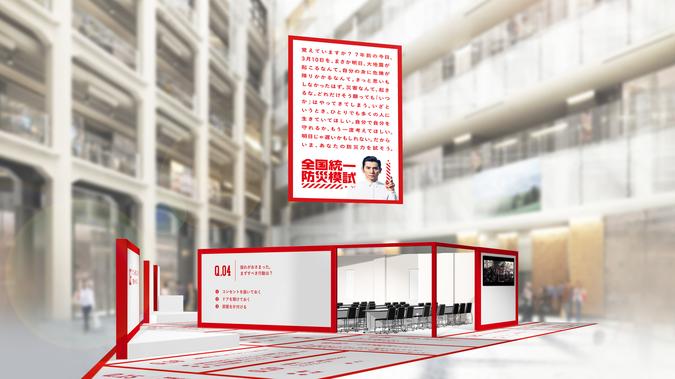[Determined version] Tips for writing good reading impressions
How to write reading impressions is hard to learn.Are you not good at reading impressions even if you become a college student or a member of society?
"I don't know how to write. What should I do ..." "How can I write interesting impressions?"
…… If you are such a person, please read this article.In addition to the abundant example sentences, I will explain the tips on how to write good reading impressions.
Configuration of good reading impressions
To understand how to write a good reading impression, let's first hold down the basic configuration.
Export / main subject / tightening
Reading impressions are considered in three blocks.
- 書き出し
- 本題
- 締め
"Export" is the first paragraph.The purpose is to present the theme that is the core of the impressions, and to draw the reader's interest with attractive phrases.
It is the "main subject" that receives "export" and expresses impressions and claims.It is "tightening" to conclude and summarize the whole.
- 「書き出し」で読者を惹きつける
- 「本題」で感想や私見を述べる
- 「締め」で意外性のある結論を述べる
If you are a reading impression, it will be beautifully composed, and readers will feel interesting.
The main subject is postponed
When writing a reading impression, decide from "export" and "tighten" instead of "main subject".If you start with the "main subject", you are worried, "How do you start writing ..." and "How do you close?"
If you hit two dots on the paper, the angle and length of the lines to be drawn will be determined automatically.Similarly, the content is determined by determining the "starting point" and "end point" of the sentence.
Educational scholar Takashi Saito introduces how to write "questions" for export and "answer" at the end.He first asks questions, "What is the essence of work?"
You can attract readers, "What is the answer?"The purpose of "proving the answer to the question" is born, so you can see what you write as the main subject.
If "export" and "tighten" are decided, it will be easier to think about the content of the "main subject" like a hole problem.About 1,000 characters (2-3 manuscript paper) should be filled without difficulty.
Four compositions
Specifically, what kind of "export" and "tighten" should I do?Takashi Saito: We will organize the contents of "The best reading impressions that anyone can write" (KADOKAWA, 2012) and propose four patterns.
◆ 4 patterns of composition of reading impressions
- 感想→展開:感想から始め、そこから発展した話題で締める【例】桃太郎はとても勇敢だと感じた→私も困難に立ち向かう勇敢さをもちたい
- 問い→答え:内容に関連する問いから始め、その答えで締める【例】仕事の本質とはなんだろう?→他者への思いやりではないだろうか
- ビフォー→アフター:「読む前の自分」から始め、「読んだあとの自分」で締める【例】最初、○○と考えていた→しかし本を読んで○○という考えに変わった
- マクラ→主張:関係なさそうな話題から始め、主張につなげる【例】大谷選手は不可能とされた二刀流を貫いた→桃太郎も冒険心の大切さを教えてくれる
Examples of how to write reading impressions using these four patterns will be presented later.
How to write good reading impressions 5 steps
I will explain how to write a good reading impression in five steps.
1.Make a note while reading a book
First, read the book and write down what you thought and felt.
Please write out as you come up with.If you write about one line, the amount of information will be reduced and the points will be clear.
It will be useful later if you put a fabric or draw a line on the remaining parts.
2.Decide what you want to write most
After reading, choose one of the worst memories (what you can write) in the reading impressions.We will expand this one theme and finish it as a reading impression sentence.
3.Apply what you want to write to the mold
Once you have decided what you want to write, apply to one of the four types mentioned earlier and decide "export" and "tighten".If you read "Momotaro" and write on the theme of "I learned that it is important to have an adventure", it will be as follows.
- 【感想→主張型】書き出し:『桃太郎』を読んで、冒険心をもつのは大切だと感じた締め:私も桃太郎を見習い、何事にも積極的にチャレンジしようと思う
- 【Question → answer type】書き出し:なぜ『桃太郎』に胸打たれるのだろう?締め:冒険心をもつ大切さを、桃太郎が教えてくれるからだろう
- 【Before → After type】書き出し:私は引っ込み思案で、何事にも消極的だった締め:しかし『桃太郎』を読んで、冒険心をもつ大切さを学んだ
- 【Makura → Claiming type】書き出し:大谷翔平選手は、不可能とされた二刀流でメジャーリーグに挑んだ締め:『桃太郎』にも、冒険心をもつ大切さが描かれていた
[Impression → claim type], start with the impression that "I learned the importance of having a challenge spirit", I will develop my claim and conclude.
In [Question → Answer], let's start with the questions you read by reading the book and explore your own answers.As shown in the figure above, there is also a method of placing the theme you want to write in "tighten" and retrofitting "export" that leads to the answer.
[Before → After type] Let's think back calculation.If you want to read "Momotaro" and learn the importance of adventure, if you want to write "Before (before reading)", "I was withdrawn and was reluctant."Good.
In [Makura → Claiming Type], let's put the topic associated with the theme you want to write at the beginning.If you put an episode in Makura, "Shohei Otani has challenged the major league with an impossible two -sword style," it is easy to connect to the end of "it is important to have an adventure".
By dropping the theme you want to write into some type, "export" and "tighten" are determined, revealing the overall direction.
4.Fill in a bulleted list between "export" and "tighten"
Let's consider the "main subject" that connects "export" and "tighten".List the necessary items one by one to fill the logic between "export" and "tighten".Think of a bulleted book as a paragraph of reading impressions.
In this example, the flow is as follows.
- 「私は、冒険心のないつまらない人間だった」で始める
- 具体的にどう冒険心がないか詳しく説明
- そんな自分を桃太郎と対比
- 冒険心をもつ大切さを述べて締める
The process of "I have no adventure" (before) has filled the process of growing in "I learned adventure" (after -sales) through reading, and the plot of reading impressions was completed.
If you don't think of writing,
Let's think from .......
5.Supplement and complete the text
Write "One paragraph with one bullet" as a guide and complete the reading impression.It is an image of putting a bullet at the beginning of the paragraph and supplementing it.
In this way, the writing style of presenting one information per paragraph is called "paragraph writing" and is the basis of logical sentences.
The above -mentioned reading impressions are not all, but if you are saying "Where and how to write ...", consider the composition according to this rule.
Example of how to write a good reading impression
For each of the four "types" introduced above, I will explain how to write reading impressions while presenting examples.The subject is "Momotaro" (Masao Kusunoyama).
Impression → deployment type
First, [Impression → deployment type].I will express my impressions in "Export" and develop it into my opinion and claim.It is the most standard way to write reading impressions.You can start by quoting your favorite words.
例文
(Export = impression)
How cowardly the villagers of Momotaro are?After reading "Momotaro", I had such an impression.
(Main title)
Momotaro departs for the demon extermination alone for some reason.Only the animals you meet along the way will fight with Momotaro.The adults in the village will not join Momotaro as one.We don't do anything, just stay in the village and just wait for Momotaro to return.Even though I said from myself, a dangerous demon could go to the island alone with a 15 -year -old child alone.Isn't it too cold?
However, if you replace yourself with yourself, you can't understand the feelings of such villagers.The demon is much larger than humans, muscles, and even the kiba in his mouth.What if I was a resident of the village of Momotaro?Does the courage to attack on such a terrible demon residence?
Breaking the current situation is troublesome, sometimes at risk.If you don't act, the problem will not be solved, but instead you will not be scared or painful.There is no risk of getting the situation worse.Perhaps the psychology of "inertia" has made the villagers a second step.
If you think about it, when you were in college.The seminar drinking party to which I belonged had a custom of drinking beer at a stretch with a toast.While everyone quickly drunk beer, there are only one student who has almost never been able to speak.A -kun, one of my synchronization.
A -kun forcibly pours the beer that he is not good at, saying, "Now, fast!"But when he drank about half, he sobbed and rushed to the bathroom while holding his mouth.I heard later that A was a constitution who couldn't drink alcohol at all.Seniors and synchronization just laugh, "I'm sorry for just one cup."At that time, it was still a time when the awareness of the problem that "it was not possible to drink at a glance."So I just laughed with everyone with everyone.
At that time, I guess I was the same as the timid "villagers" who were washed away by the inertia of drinking culture.
If you think carefully, it's obviously bad, but the wrongdoing is heard by the "inertia" of "because it's a practice" or "it's been the case for a long time".There are many such cases in the world.Sexual harassment, power harassment problem in companies, forced overtime work, prejudice to minority, corruption and bribery of members of the Diet.The various social issues that are being talked about these days may have some of the psychology of "inertia".And while knowing that the "demon" is there, there aren't many braves who can stand up and raise their voices.

However, in recent years, society has begun to change with tremendous momentum.The excitement of the demonstration "Black Live's Matter" calling for the elimination of black discrimination is new to memory.In Japan, there are also movements aiming to realize a more comfortable society, such as reviewing the working environment and correcting sexual disparities.Let's take the voices of Momotaro who got up sincerely and actively improve society.I feel that such trends are gradually being fostered.
(Clearing = claim)
I think that I have the courage to confront the demon named "inertia" that hides society and my heart.
(1,340 characters)
解説
The above example is like this.
- 「桃太郎と一緒に鬼退治に行かない村人が卑怯だと思った」と感想を述べる
- それを「惰性に流されることはよくない」という一般論に発展させる
- 「惰性にあらがう勇気をもちたい」と主張する
The point of writing an interesting reading impression is to be aware of the surprise.The impression that everyone can think of, such as "Momotaro defeated the demon and was fine", is not surprising to the reader.The "unusual" opinion that the reader thinks "Is it so" will increase the value of a reading impression.
In the above example,
Incorporating the unexpectedness and so on, the readers were surprised.
It is also a point of writing a highly original reading impression sentence, such as …….
Question → answer type
In [Question → Answer], we ask the question at the beginning and give the answer in the conclusion.
Let's finish by throwing the question as "question" and presenting the "answer".
… And delve into the episodes and related themes in the story, and consider “questions” from various angles.Finally, it is OK to consider questions from the claims and conclusions you want to say.
In any case, the question of making a hypothesis on your own, rather than the question that the answer is, will increase the quality of reading impressions.
例文
(Export = question)
Was the demons really "bad guys"?After reading "Momotaro", I hit such a question.
(Main title)
This is because the text of "Momotaro" did not have any definitive evidence that the demon was working wrong.
First of all, Momotaro thinks about extermination of demon because he heard a "rumor story" from a traveler who came to the village, saying, "The bad demons are grabbing treasures from the Hobo country."In other words, Momotaro did not directly see the scene where the demon is doing bad, nor from the parties who were attacked by the demon.Only the true uncertain rumors of a stranger heard from a stranger are the only basis for the demon as a "bad guy."
In the first place, there is only one place in the text that the demons behave aggressively.At the end of the story, "((the demon)) came to the side, saying" Oh, oh. "However, this one sentence alone cannot determine the demon as a ferocious dangerous creature.Because this is the scene where Momotaro and the demons attacked the island.It is natural that demons take defense actions because they are attacked by foreign enemies.
In addition, the demon is depicted as a weak and weak creature that is so easy to surrender because he is looking at the pheasant or being caught by monkeys.There is even a direct description of "a big body and no demon."When Momotaro landed on the island, the demons seemed to say, "I fled to the gate and tighten the Kurogane gate."Can such a weak and timid demon work on the wrongdoing that the traveler told?
As you read the text of "Momotaro" like this, there is no evidence that the demons are "violent and violent bad guys."The demons may have been a kind creature, just because they were easily misunderstood from the terrible appearance.The fact that they built a durable "Kurogane Castle" and the demon was on the island of the island was a bitter measure to protect himself from external enemies?Considering this, various questions in the story, such as "Why do demons live in remote areas such as islands?"Also solves.
(Close = answer + claim)
Based on the above discussions, it is quite possible that the theory of "demon = bad guys" was just a unilateral decision by Momotaro Side.
With no solid grounds, Momotaro should not suddenly attack the demon and attack the demon.First of all, is the rumor story true?Or is it a hoax?Perhaps it was necessary to check the truth carefully.
In a modern society where SNS and the like have developed, there is an environment where everyone can easily disseminate information.The truthful uncertain information has begun to fly around the world.It is not unusual for the information to be misleading, prejudice, and develop into a quiet way.
Someone is tailored to a "demon" and is "defeated" under the name of justice.In order not to produce such a tragedy, each of us will have to be aware of information correctly and select information.
(1,292 characters)
解説
The above example is like this.
- 「鬼は本当に『悪者』だったのだろうか?」と疑問を投げかける
- 鬼を悪者と言いきれない理由を論証
- 「鬼は本当に『悪者』だったのだろうか?」という疑問に答えを出す
- その答えから導いたことを主張
In this case, the point is still "unexpected".The premise that the demon is a bad guy, gives the reader a surprise.
Before → After type
In [Before → After Type], you compare yourself (before) before reading a book with yourself (after -sales) after reading a book, and describe your internal change through reading.
This is the rough flow of [Before → After Type].You can write your own growth through reading, so it is suitable for reading impressions issued as schools and company issues.
例文
(Export = before)
I think I was a boring person without an adventure.
(Main title)
I usually use a little challenge and often avoid it unconsciously.For example, you can get a new hobby, pick up a new genre book, or go to a stranger without a purpose.When was the last "adventure"?
On the other hand, Momotaro is different.Momotaro said the demon story from a traveler and said, "The demon wanted to go to the island and couldn't stand even if he was there."I want to jump into an unknown world of the island.The adventure of such an arrow and a shield was irresistible, driving Momotaro to exterminate the demon.There may have been some justice of "I want a treasure" and a sense of justice of "I want to defeat the bad demon", but they would have been just an "bonus".
If I first thought that such a creepy and terrifying demon didn't want to go to the island."It's troublesome," "Dangerous," and "I can't do that."I'm a little enviable to Momotaro, who can act as passionate.
Of course, it is dangerous to "Mitoku" to let go of the adventure.The adventure that goes too much is just "reckless".If you act without thinking about the earlier, you will often see painful eyes.In some cases, it may be irreparable, such as losing life.Fearing unknown is also a proof of wisdom.
(Close = after)
However, life is boring even if it's just clever.In order to live an irritating life, you may also need to jump into a spice -like adventure.From now on, I would like to learn from Momotaro and try to challenge something new in work and private life.
(768 characters)
解説
The example sentence above is like this.
- 私は冒険心を忘れていた
- しかし、桃太郎に感化された
- 「冒険心の大切さを学んだ私」に成長した
To enhance your persuasive power, put the following elements:
Isn't it relatively easy to write the movement of your heart as it is?
Makura → Claiming type
Finally, [Makura → claim type].
Makura means "small story before entering the subject" in rakugo.Showa's rakugo master, Kokin -tei Shincho, started with a greedy boatman, saying, "There is something greed for humans and everyone ..." in the performance of "Yumekin".
Makura's technique can also be used for reading impressions.
Starting with a topic that is a little away from the contents of the book, such as ……, will create surprisingness and have a stronger impact.
What if the reading impression of "Momotaro" starts with "I like watching sports?"I'm curious because I can't predict how sports watching will lead to "Momotaro".
[Makura → claiming type] requires techniques from the other three types, starting with a topic that seems to be unrelated to books.The more the distance between Makura and the subject, the greater the surprise and the more impactful.
例文
(Export = Makura)
The word "reputational damage" spread to the public, in the case of the Great East Japan Earthquake in 2011.
At that time, farmers and fishermen in Fukushima Prefecture were suffering from reputational damage.Despite the clearing of the test standards for radioactive materials, vegetables and fish were not sold or sold just because they were described as "Fukushima"."Food from Fukushima is dangerous," such a hoax spread through the Internet and reviews, and the Agricultural and Fisheries in Fukushima Prefecture was hit seriously.
In one case, we must have witnessed the fear of reputational damage and the foolishness.Nevertheless, such cases are still endless.For example, fake news is spread on the Internet, and celebrities are slandered.Hoax and conspiracy theories spread, and public institutions receive bashing.Personal information of victims and stakeholders in the famous incident is exposed on the Internet, making it unreasonable.
A modern society where everyone can easily send information.The world is full of truthful information, and it has begun to have a powerful power that surpasses the truth.
(Main title)
Did the demons appearing in "Momotaro" actually were the victims of such "reputational damage"?In this article, I would like to think about such a hypothesis.
This is because the text of "Momotaro" has no definitive evidence that the demon is working wrong.
First of all, Momotaro thought of exterminating the demon because he heard from a traveler who came to the village, saying, "The bad demons are grabbing treasures from the Hobo country."In other words, Momotaro did not directly see the scene where the demon is doing bad, nor from the parties who were attacked by the demon.Only the truthful rumor that a stranger heard from a stranger is the only basis for regard the demon as a "bad guy".
In the first place, there is only one place in the text that the demons behave aggressively.At the end of the story, "((the demon)) came to the side, saying" Oh, oh. "However, this one sentence alone cannot determine the demon as a ferocious dangerous creature.Because this is the scene where Momotaro and the demons are attacking the island.It is natural that demons take defense actions because they are attacked by foreign enemies.
In addition, the demons are weak and weak creatures that are so easy to surrender because they are looking at the pheasant or being caught by monkeys.In the text, there is even a direct depiction of "a demon that is just large and has no geiju."When Momotaro landed on the island, the demons were "fled and fled into the gate and tightened the Kurogane gate."Can such a weak and timid demon work on the wrongdoing that the traveler told?
As you read the text of "Momotaro" like this, there is no basis for determining the demons as "violent and violent bad guys."In other words, it is quite possible that the theory of "demon = bad guys" was just a one -sided decision by Momotaro Side.
With no solid grounds, Momotaro should not have suddenly attacked the demon and attacked the demons.First of all, is the rumor story true?Or is it a hoax?I guess I should have taken the steps to check the truth carefully.
(Clearing = claim)
Due to reputational damage, innocent people are tailored to "demons" and are "defeated" under the name of justice.In order not to produce such a tragedy, each of us must have the awareness of correcting and selecting information.
(1,466 characters)
解説
The above example develops like this.
- マクラとして風評被害の事例を提示
- そこから「鬼たちが悪者ではなかった」という自説の提唱・論証
- 「情報を正しく取捨選択すべき」と主張
The content is almost the same as an example of [question → answer type], but the impact is increased by the existence of Makura.
- 「風評被害」という唐突な話題から始まる意外性
- 「風評被害」と『桃太郎』がどうつながるか、という疑問
The two elements are the way of writing reading impressions that are interested in readers.
Tips for writing good reading impressions
As a way to write the reading impressions, let's keep the following points.
I'm not bound by the correct answer
As a major premise, reading impressions are just "impressions".There is no absolute correct answer or rules that must be written like this.
"This book was very boring." "I couldn't sympathize with the author's opinion at all."
That's a good impression.Regardless of the theme or cut, you should be able to evaluate if the content is good.However, if you write critically, you need to logically explain "why it was boring" and "why you couldn't sympathize" and lead to constructive discussions.
The exception is to submit a reading impression sentence for company issues.Imagine what kind of impression is required, and write the line as long as it doesn't come off.
If you are told to write an impression on a self -development book, the questioner should want to write what you can learn from the book as a member of society and what you are going to use in your job.It is easy to imagine that the impression that "it was boring" or "useless" was not required.
Take into account who reads the reading impressions and what is the purpose of reading impressions and adjust the direction.
The title is unique
Let's stick to the title of the reading impression sentence.According to Mr. Saito mentioned earlier, if the title is as obvious like "Read XX", it may be judged as "there is no way to devise" or "boring".Think of a catchy title that will remain in the eyes of readers.
According to Saito, if you read the book and put the points that you felt "important" in a brief manner, it would be easier to move the reader's heart.
There are various approaches such as …….
Synopsis is not required
There is no need to write a synopsis or summary of the book in the reading impression sentence.The reading impression is because it tells you what you have, and it is not something to teach the reader the contents of the book.
If the issue book is specified, there is no doubt that the reader is familiar with the contents of the book.Rather, it would be easier to read if you do not write a synopsis or summary.
We recommend that you omit the synopsis and summary, except when you really need it or if you want to quote the text.
Be aware of surprise
Again, what is needed for interesting reading impressions is "surprise".According to Saito, people feel exciting and interesting when they see "surprisingly unexpected things."
You can understand novels, movies, dramas, etc.What I feel "interesting" is when I came across "unexpected", such as unexpected developments, and the characters acted without a sudden.
What if you wrote in the reading impression that "Momotaro was very good"?Certainly, it is an "normal" opinion that everyone thinks, and there is no surprise or freshness.I can't think it's "interesting".
"Isn't Momotaro really wrong?" "The demon was really a good man."
In this direction, the premise that "Momotaro is good" is betrayed, creating surprisingness.It will be an interesting reading impression sentence that makes you feel like that!Even if you write "Momotaro was fine", if there is surprisingly the discussion or conclusion that develops from there, it will be evaluated as an interesting reading impression.
Hitoshi Ogawa, a philosopher, also advocates to "dare to put" sting "as a technique to think about his own opinion.Thinking about the "opposite" of the claims in books makes it easier to create "unusual opinions".
You don't have to write a twisted opinion, but if you want to finish your reading impressions more interestingly, be aware of the element of "surprise."
Think by replacing it with yourself
As a tips for writing reading impressions, Yumi Tamiya, a family education researcher, recommends imagining "if you are yourself" and having your own experiences.
Everyone has a slurr language about his thoughts and experiences.
If you draw on yourself, such as ……, it will be easier to come up with what you need to write.
In particular, the experience story is recommended.It is fresh for the reader because it is information that no one has experienced except for himself.You can add "originality" and "surprise" to reading impressions.
Let's aim to complete an excellent reading impression sentence while paying attention to the "how to write reading impressions" introduced.
Books / web sites where you can learn how to write good reading impressions
If you want to learn how to write a reading impression, we also recommend this book or web site.
AmazonThe best reading impressions that anyone can write (Kadokawa Bunko)
Amazon*** The best way to write a good reading impression is "export" and "tighten", and then write the overall configuration before writing.Refer to the tips and example sentences introduced, and aim to complete the reading impression sentence.
(Reference) Kogakukan University | Structure of the theory (2012), "The best reading impressions that anyone can write", kadokawa.Hitoshi Ogawa (2016), "Output reading technique that changes to results in 7 days".Cultural Digital Library | Characteristics of Art: Makura + Main Title + Sage Composition All About | From writing to conclusions!What is the configuration that leaves impact? ALL ABOUT |With example sentences
[Writer Profile] He majored in philosophy at Sato Shun University and has a wealth of reading experience in humanities.He is particularly good at writing in psychology and brain science, and has more than 200 writings.Acquired the know -how of memory and writing techniques from his wide research experience.He strives to expand his culture under the motto "writers who can stimulate the intellectual curiosity of readers."






![[July 6 and 7] DX realized by content cloud, advanced platform for business transformation](https://website-google-hk.oss-cn-hongkong.aliyuncs.com/drawing/article_results_9/2022/3/9/6bbafe438d78271513761788166cbf94_0.jpeg)

